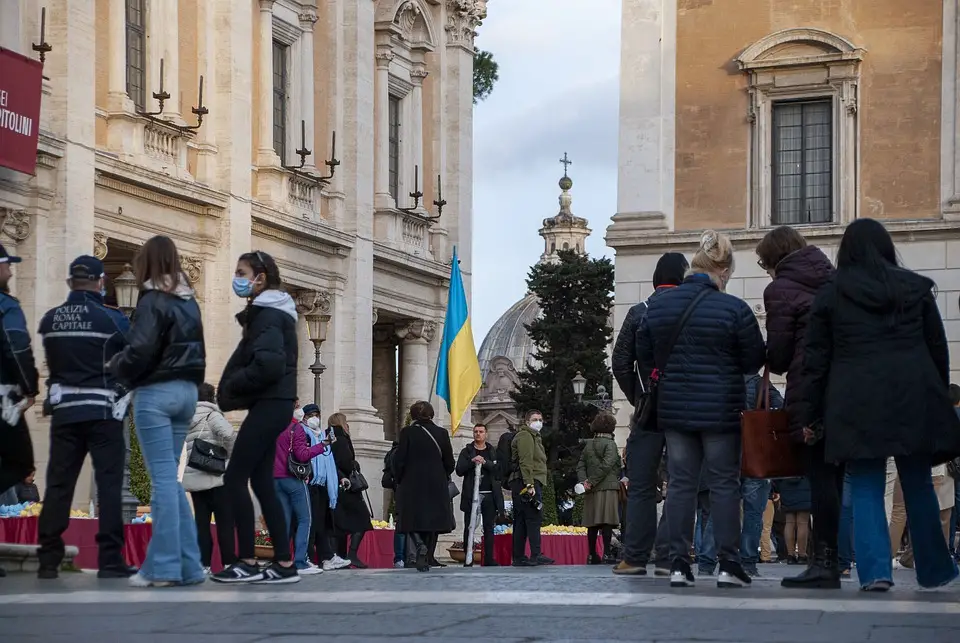As Poslovni Dnevnik/Tomislav Pili writes, Russian bankruptcy, which is increasingly likely to occur soon, will not be felt by the Croatian financial system, and global finances should not be shaken by such a scenario either, according to Croatian analysts.
After announcing on Monday that the Russian Ministry of Finance will pay out interest to foreign investors in rubles instead of dollars, the story coming out of Moscow altered Russia’s state treasury has announced an order has been sent to pay 117.2 million US dollars in coupon interest on Eurobonds it has to pay out to foreign investors this week, dispelling any speculation that it won’t be able to meet these financial obligations.
This is what’s known as coupon interest on Eurobonds maturing in 2023 and 2024, and Moscow is thus preparing to settle its first foreign debt obligation since the imposition of harsh sanctions following the Russian invasion of Ukraine.
Reuters noted that it couldn’t immediately confirm the information on the preparation of these coupon interest payments with the bondholders. The payment of coupon interest in rubles would mean that Russia wouldn’t be able to settle its obligations under the bond, so it would have to repay the entire debt. Russia has to settle obligations on 15 bonds issued on international markets worth about 40 billion US dollars, according to Reuters. Approximately half of these bonds are owned by foreign investors.
”The last time Russia failed to meet its financial obligations to foreign investors was more than 100 years ago, after the revolution of 1917, when the Bolshevik Government did not recognise the debt of the then-tsarist Russia. If Russia avoids bankruptcy in its current situation, international markets believe it will only be a postponement of the inevitable.
The recent statement by the head of the International Monetary Fund that Russia’s possible bankruptcy is no longer considered an unlikely event actually confirms what has been “read” from financial markets for some time, looking at Russian bond prices, said Mate Jelic,” an analyst at Erste Bank.
“Russian dollar bonds have been trading at only 15-20 percent of the nominal value for some time now, which actually implies their expected bankruptcy. According to Bloomberg, the total exposure of foreign investors, including debt in rubles and foreign currencies, doesn’t exceed 70 billion US dollars, which roughly corresponds to the exposure of Argentina’s total debt when the country went bankrupt back in 2020. Even if this worst-case scenario does occur, ie if Russia stops paying the entire amount of its debt held by foreign investors, no major shocks are expected on the global financial market,” Jelic assured.
When asked how much the Croatian financial system could be threatened by a possible Russian bankruptcy, the Croatian Financial Services Supervisory Agency (Hanfa) said that, according to their analysis, the Croatian non-banking financial sector is more or less not directly exposed to the securities and financial instruments of Russia, Ukraine and Belarus.
“In Croatia, there are no financial companies from Hanfa’s supervision that are directly owned by Russia. Due to the already existing legal restrictions, pension funds are not directly exposed to Russian, Belarusian and Ukrainian financial instruments, nor are they exposed to open-end investment funds and leasing companies,” they explained from Hanfa. The assets of insurance companies are only 0.5 percent exposed to direct investments in financial instruments of Russian issuers.
“Despite the impact of the war in Ukraine on the Zagreb Stock Exchange, it’s important to note that there are no listed financial instruments related to Russian issuers or indices of Russian stock exchanges, so there were no suspensions of trading financial instruments as on other European stock exchanges. In addition, the stock exchange isn’t exposed to Russia in terms of ownership, ie to the persons listed on the list of Russian sanctions,” they concluded from Hanfa.
For more, check out our politics section.











